Iranian FM Warns Of ‘Preemptive Measures’ Against Israel
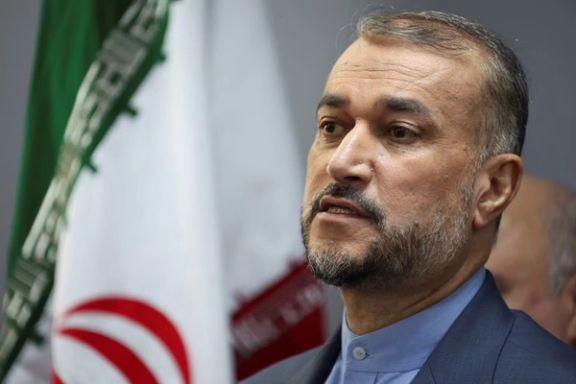
As tensions escalate in the Middle East, the Iranian Foreign Minister issued a warning about possible “preemptive measures” against Israel.

As tensions escalate in the Middle East, the Iranian Foreign Minister issued a warning about possible “preemptive measures” against Israel.
During a televised statement on Monday, Hossein Amir-Abdollahian expressed concern about the continuation of what the Iranian regime refers to as "war crimes of the Zionist regime", claiming if the bombardment of Gaza does not stop, "new fronts will be opened", referring to its proxies in Lebanon and Syria on Israel's borders.
It further raised concerns of Iran's fueling an already bloody war which since Hamas' October 7 invasion of Israel, has seen thousands killed across Israel and Gaza.
Shortly after his remarks, the Israel Defense Forces (IDF) launched airstrikes on Hezbollah positions in Lebanon. The IDF aimed to thwart an attempted penetration by Hezbollah forces into northern Israel. The IDF announced it had killed four terrorists on Tuesday morning.
The IDF stated that the targeted sites in Lebanon were used by Hezbollah to direct acts of terrorism. The strikes were in response to previous attacks by Hezbollah against the IDF. Former Hamas leader Khaled Meshaal also encouraged Hezbollah to become more directly involved in the ongoing conflict, emphasizing the importance of unified efforts in the battle.
At the same time, US President Joe Biden is scheduled to visit Israel and then proceed to Jordan on Wednesday, where he will engage with leaders from both Israel and the Arab world.
Biden's primary objective is to convey an unwavering commitment from the United States to support Israel. His administration has affirmed its dedication to providing military assistance, dispatching US carriers and aid to the region.
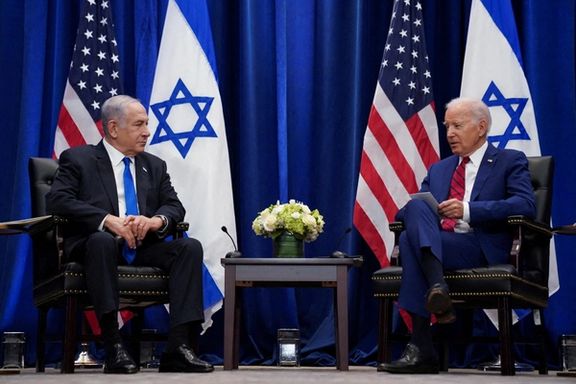
President Joe Biden will visit Israel on Wednesday, the White House has announced, as the commander of US forces in the Middle East arrived in Israel on Tuesday
The visit comes amid growing concerns that the conflict between Hamas and Israel would spread out and set the region ablaze.
Israeli forces have been preparing for a ground invasion of Gaza since last week, in retaliation for Hamas’ unprecedented attack that killed more than 1400 Israelis.
President Biden will also visit Jordan, where he will meet with King Abdullah, Egyptian President Abdel Fattah Sisi, and Palestinian Authority President Mahmoud Abbas. The leaders are expected to discuss the humanitarian situation in Gaza, where over 2,700 have been killed in Israeli airstrikes.
Secretary of State Antony Blinken said this morning that “the United States and Israel have agreed to develop a plan that will enable humanitarian aid from donor nations and multilateral organizations to reach civilians in Gaza.”
Blinken is on a marathon tour of the region. Monday, he had a 7-hour meeting with Israeli Prime Minister Netanyahu and his war cabinet.
President Biden's visit was announced only after Blinken received assurances that the Israeli government would agree to a comprehensive humanitarian aid package, including the establishment of safe zones for Palestinian civilians.
The US government seems to be pursuing a dual objective of aid and de-escalation, while supporting Israel in any decision it takes in its war against Hamas.
"We're not dictating terms or operational directions to the Israelis," said the Pentagon Press Secretary John Kirby on Monday. “We don't want to see escalation. We want to make sure humanitarian assistance begins to flow."
Hamas has taken numerous hostages into Gaza, including an undisclosed number of American citizens. Biden’s visit underscores the urgency of resolving this crisis.
US officials have expressed deep concern about the risk of this conflict escalating into a broader regional war. Biden has also issued warnings to other actors, particularly Iran, urging restraint and caution.
On Monday, Iranian Foreign Minister Kanaani issued a veiled threat to Israel. “They expose themselves to all sides that consider themselves committed to supporting the Palestinian people," he said, implying that its proxies on Israel's Lebanese and Syrian borders will once again be mobilized.
The Biden administration is keeping a watchful eye on the sentiments in Arab countries, where there is significant sympathy for the Palestinian cause. Escalation in the region could intensify pressure on these governments to take action against Israel, further complicating the situation.
Hezbollah began its most active day of attacks against Israel since the war began as tensions simmered and 28 towns and villages in Israel were subsequently evacuated.
On the other side, Israel’s attack on Gaza has displaced more than half a million Palestinians. The Israeli military says it won’t stop until Hamas is eliminated. It has called for over a million Palestinians to evacuate northern Gaza. UN officials have deemed this order unworkable and against international law.
The UN and the Biden administration have tried to draw a clear distinction between Hamas and Palestinian civilians, as Hamas has been urging residents not to leave northern Gaza. Many accuse the militant group of using civilians as human shields.
Egypt, a historical mediator in cease-fires between Israel and Palestine, plays a pivotal role in the ongoing efforts to secure humanitarian assistance. The Rafah crossing on the Egyptian border with Gaza is seen as the only lifeline for many Palestinians.
Secretary Blinken has tried to negotiate the opening of the Rafah crossing for the departure of foreigners and dual nationals. Following his meeting with President Sisi, Blinken announced that Rafah "will be opened".
The status of this agreement remains somewhat unclear.
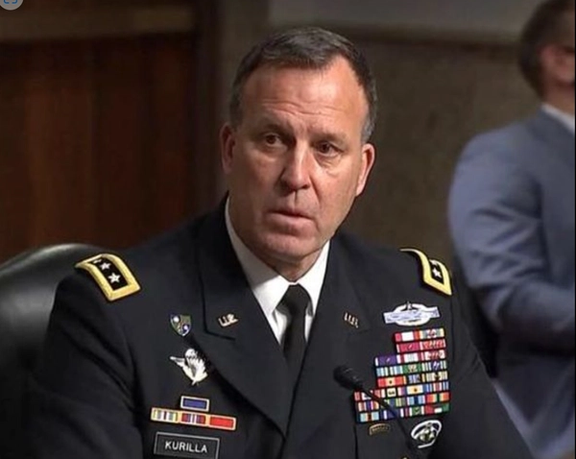
The top US general overseeing American forces in the Middle East made an unannounced trip to Israel on Tuesday ahead of a visit by President Joe Biden on Wednesday.
He expressed hope to be able to ensure the Israeli military has what it needs as it fights a deepening war against Palestinian militant group Hamas.
The trip by Army General Michael "Erik" Kurilla, head of US Central Command, is the latest by a senior US official to Israel ahead of an expected ground assault by Israel's military in Gaza.
The US military is increasing its firepower in the region, aiming to prevent Iran and other Iran-backed groups from getting involved in the conflict as international fears of a wider, regional war grow.
The Pentagon is also rushing weaponry, including air defenses and munitions, to Israel.
"I'm here to ensure Israel has what it needs to defend itself, particularly focused on avoiding other parties expanding the conflict," Kurilla told Reuters, which is traveling with him, in brief remarks before landing.
A US official told Reuters Kurilla was scheduled to hold high-level meetings with Israel's military leadership, ensuring a clear understanding of the close US ally's defense requirements.
Kurilla was also expected to outline US military support aimed at avoiding an expansion of the Israel-Hamas conflict.
Washington has deployed an aircraft carrier strike group to the eastern Mediterranean and is sending another carrier to the region in the coming days, moves the Biden administration says are meant as a deterrent, not a provocation.
The US already has a network of bases in the Middle East with troops, fighter aircraft and warships.
The United States has also told some troops, potentially 2,000, to be ready to deploy within 24 hours if notified - instead of the usual 96 hours - and could include units that provide assistance like medical aid if needed, a US official said on Monday.
Report by Reuters

The murder of a renowned film director and his wife in Iran has raised suspicions of parallels with the serial murders of intellectuals by intelligence agents in the late 1990s.
Dariush Mehrjui and Vahideh Mohammadifar were stabbed to death at their villa near Tehran Saturday. Bodies were discovered by their daughter, Mona Mehrjui, the same evening.
The revered eighty-three-year-old director refrained from engaging in politics for many years. However, over the past year, he subtly expressed support for the ongoing Woman, Life, Freedom anti-regime movement. This support is speculated to be a possible reason for him being targeted by the state, according to some allegations.
Mehrjoui had also condoled dissident soccer legends Ali Daei and Ali Karimi, and Elnaz Rekabi, a climber who was one the first to ditch her hijab in an international competition, in a handwritten letter he published on Instagram at the height of the protests last year for “the catastrophic massacre of innocent teenagers and youth”.
BBC’s Persian channel on Sunday also aired excerpts of an unfinished documentary about Mehrjui’s life by Hassan Solhjou, a filmmaker and a senior producer of BBC World Service, in which he was expressing his opposition to compulsory hijab by removing his wife’s headscarf. In another scene, he said he was tired of “four decades of deceit”, referring to the 44 years of Islamic rule in Iran.
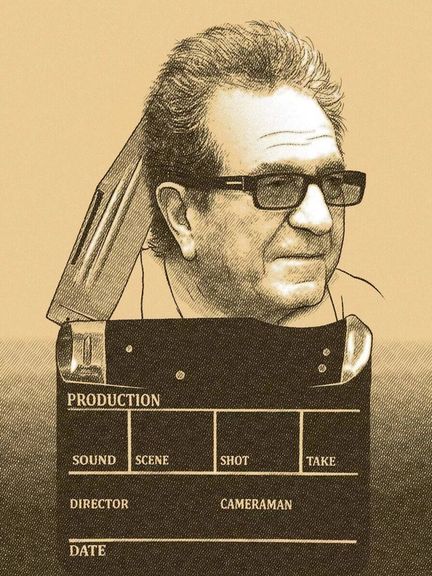
Iranian media, politicians and activists have extensively pointed out the similarity between the double murders and the killings of tens of dissident politicians, writers, activists, and even academics over a period of at least two years that came to be known as “chain murders” in the late 90s.
“The news of Dariush Mehrjui and his wife’s murders was an immediate reminder of the serial murders in the 1990s, particularly the murders of Dariush Forouhar and his wife [Parvaneh Eskandari], which bore dire consequences [for the country],” Jomhouri Eslami wrote Monday in an editorial entitled “Take The Karaj Murder Seriously”.
Forouhar, who was the leader of the pan-Iranist Nation Party of Iran, and his wife Parvaneh met a brutal end when they were repeatedly stabbed at their Tehran home in November 1998. These heinous killings triggered widespread national outrage and were promptly linked to dozens of other unsolved murders of intellectuals by both the public and the reformist media.
Supreme Leader Ali Khamenei and his supporters blamed “foreign enemies” including Israel for the murders of Forouhar and his wife but public demand for answers eventually led to the reformist government of President Mohammad Khatami to take action to find the culprits.
At Khatami's insistence, a three-member investigative team was formed, and it ultimately confirmed suspicions that the intelligence ministry was directly involved in the killings.
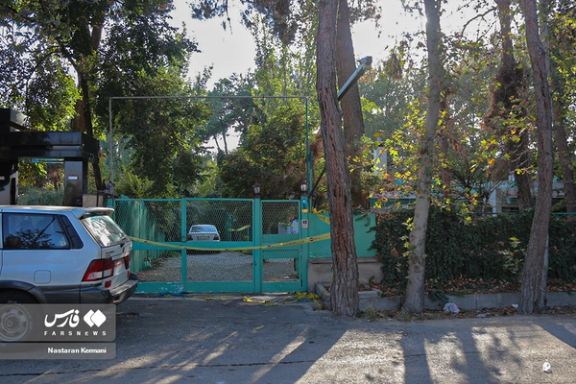
The ministry issued an unprecedented statement on January 4, 1999, which blamed “rogue” agents for four of the killings while calling the murders “despicable and abhorrent” and the minister, Ghorban-Ali Dorri-Najafabadi, favored by Khamenei who had still not consolidated his power as Supreme Leader, was replaced with the relatively moderate Ali Younesi.
The chain murders and the scope of the conspiracy are still shrouded in mystery. Intelligence agents arrested for the killing were tried behind closed doors by a military court and Saeed Emami, a deputy minister who allegedly masterminded the murders was said to have committed suicide in prison.
The Jomhouri Eslami newspaper, which serves as a mouthpiece for moderate traditionalist clerics and holds the distinction of being the Islamic Republic's oldest newspaper, called upon the authorities not to prematurely conclude their investigations, even if they discover that theft played a role in the incident.
“One should not ignore the possibility that theft could have been used as a cover for the real goal and a group planned and carried out the theft through several intermediaries as a cover up,” the newspaper warned.
Officials including President Ebrahim Raisi and Chief Justice Gholam-Hossein Mohseni-Ejei have ordered the case to be promptly investigated and a police spokesman has said that so far seven have been arrested on suspicion of involvement in the double murders.

Russia’s President Vladimir Putin, who has been isolated on world stage, entered the diplomatic fray of the Israel-Hamas war on Monday speaking with regional leaders.
Putin who spoke with Iran’s President Ebrahim Raisi and leading Arab powers in an attempt to secure a ceasefire in the war between Israel and Hamas.
Raisi was quoted as telling Putin that supporting the Palestinians is Iran's foreign policy priority, but the "resistance" groups make their own independent decisions, Iranian state media reported.
They quoted Raisi as also telling the Russian president: "There is a possibility of the conflict between Israel and Palestinians expanding to other fronts."
Iran’s clerical rulers, who have supported militant Arab groups for four decades with money, weapons and training, celebrated the Hamas attack on Israel and the killing of over 1,400 Israelis. The United States has warned Tehran not to get directly involved, as it has sent a powerful naval task force to the Eastern Mediterranean to deter Iran’s proxy the Hezbollah from opening a northern front against Israel.
Russia, which has relationships with Iran, Hamas, major Arab powers as well as with the Palestinians and with Israel, has repeatedly said the United States and the West have ignored the need for an independent Palestinian state within 1967 borders.
Russia’s relations with the West have significantly worsened after it invaded Ukraine last year trying to replace the government in Kyiv and annex large parts of the country.
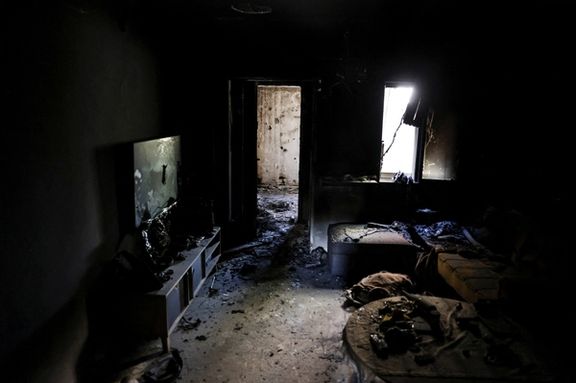
Iran has defended the Hamas attack on Israel that has killed at least 1,500 as “a natural response within the framework of legitimate rights.”
Foreign Ministry spokesman Naser Kanaani said during his Monday press conference that “the actions taken by the resistance front were within their rights, in response to the Zionist crimes against Palestinians.”
Kanaani held photos of the aftermath of the bombing on Gaza which followed the infiltration of militants by air, land and sea, slaughtering hundreds of civilians, and reiterated Tehran’s warning that if the offensive on the enclave continues, the situation could escalate beyond control, “jeopardizing international peace and security.”
However, when he was directly asked about Iran engaging in the war in case of Israel's ground offensive in Gaza, Kanaani dodged a tangible response and only said that Hamas can defend itself. Thousands of Hamas operatives infiltrated Israel by land, air and sea on October 7, massacring hundreds of civilians and kidnapping at least 199 into Gaza, including women and children.
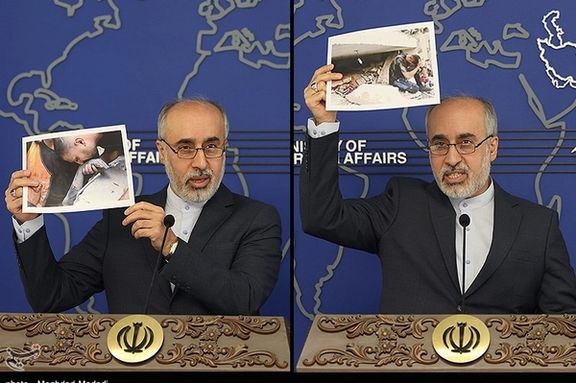
Kanaani said that the actions “cannot be limited to a single front,” and that Israelis "expose themselves to all sides that consider themselves committed to supporting the Palestinian people," suggesting its proxies on Israel's Lebanese and Syrian borders will once again be mobilized. On Sunday, Hezbollah began its most active day of attacks against Israel since the war began as tensions simmered and 28 towns and villages in Israel were subsequently evacuated.
Kanaani claimed that the Palestinian resistance represents the Palestinian nation against Israel, a statement that directly contradicts remarks by Mahmoud Abbas, the president of the State of Palestine and the Palestinian National Authority. Abbas criticized Hamas on Sunday but then quickly rescinded the comment after alleged pressure from Hamas which controls the Gaza Strip.
Palestinian news agency WAFA initially quoted Abbas telling Venezuelan President Nicolas Maduro that Hamas’ policies and actions “do not represent the Palestinian people", the Palestine Liberation Organization the only legitimate representative of the Palestinian people. The reference to Hamas was later removed, the statement only claiming "the PLO is the sole legitimate representative of the Palestinian people, and not the policies of any other organization.”
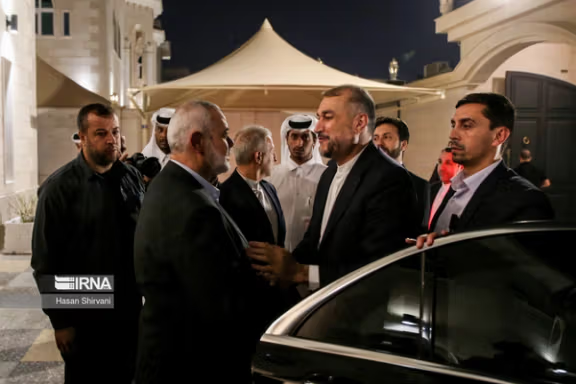
Iran’s Foreign Minister Hossein Amir-Abdollahian, who arrived back in Iran after a tour of Iraq, Syria, Lebanon and Qatar Monday, has been equally threatening in his language, warning of a “huge earthquake” in Israel if airstrikes continue on the Gaza Strip. Meanwhile, the regime continues to deny its being behind the war declared by Hamas on October 7.
Amir-Abdollahian met with leaders of Hamas, Hezbollah, and Islamic Jihad during his trips to gain accurate intelligence on the status of Hamas on the “battleground,” the Iranian diplomat said. Hamas has reassured Iran that it has the “necessary equipment” to confront Israel, not surprising after years of being funded at least $100m annually in addition to military and logistical support.
After his meeting with Hezbollah leader Hassan Nasrallah over the weekend, Amir-Abdollahian said “I know about the scenarios that Hezbollah has put in place. Any step the resistance will take will cause a huge earthquake in the Zionist entity.” Hezbollah, the biggest of Iran's proxies, garners at least $700m a year in funding, and is known to have a far greater arsenal at its fingertips thanks to regime support, which the group showcased just weeks ago at a military exhibitionfor the media.
The regime terms Israel "the Zionist entity" or "Zionist regime" and the "resistance" front or axis is the term to describe Iran's logistic, financial and intelligence support for Palestinian terrorist groups such as Hamas and Islamic Jihad. It also supports proxies on Israel's other borders, Iran and Lebanon, in addition to several others around the region.
Amir-Abdollahian is scheduled to travel to Saudi Arabia for an urgent open-ended extraordinary meeting of the Organization of Islamic Cooperation (OIC) on Wednesday to address the escalating war. The meeting was called by Riyadh, which until the war broke out was teetering ever closer to a normalization deal with Israel which Iran had vocally opposed, leading analysts to suggest the war was orchestrated to debilitate the talks.
While Iran tries to make it look like it is pursuing diplomatic means to end the crisis, the Islamic Republic’s authorities continue threatening Israel with destruction and are not shy about their military and intelligence support for Hamas. Echoing similar sentiments by Supreme Leader Ali Khamenei, Revolutionary Guard commander-in-chief Hossein Salami said Monday that the new Gaza war is “the first phase of the impending collapse of the Zionist regime.”
Iran sent a veiled warning through its UN mission on Saturday against Israel's potential ground invasion of Gaza. The Iranian message stressed that it does not want further escalation, but warned, "If the Israeli apartheid’s war crimes and genocide are not halted immediately, the situation could spiral out of control and ricochet far-reaching consequences".